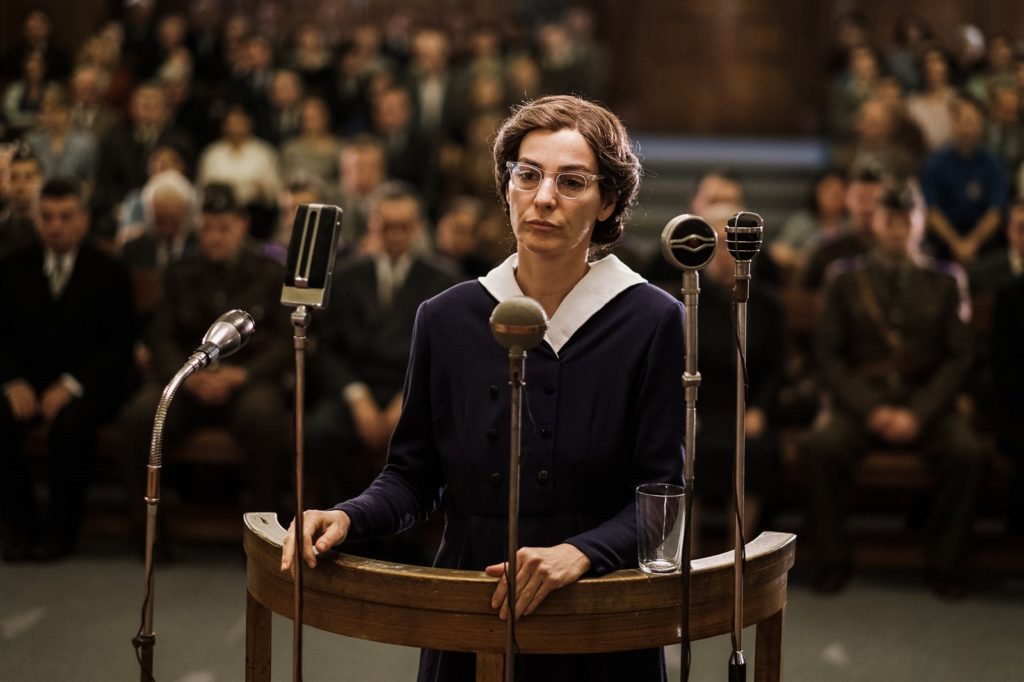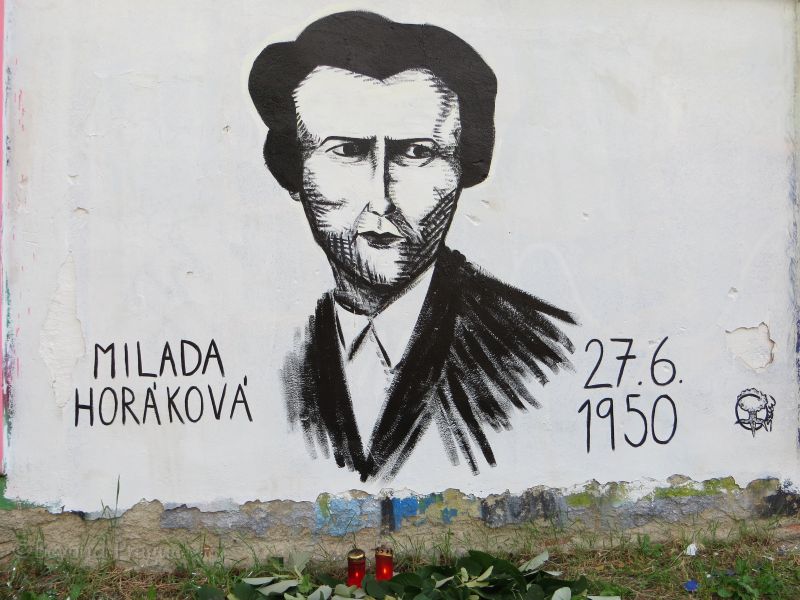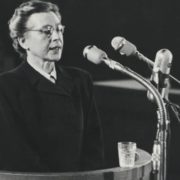Although she is not one of the best-known Czechs in history abroad, Milada Horáková has come to represent the sufferings of a great many people under the Communist regime in Czechoslovakia, especially during the 1950s.
Milada Horáková was born in Prague on Christmas Day in 1901.
After graduating, Milada married Bohuslav Horák, and joined the Czechoslovak National Socialist Party in 1929. She later worked for the City of Prague, and Women’s National Council, preparing legislative proposals supporting women’s rights, such as the equality of women in society and social issues.
With the Munich Agreement and Nazi rule, she joined the underground movement. She and Bohuslav were arrested on July 2, 1940; Milada was held in Prague’s Pankrác district for two years before being sent to the concentration camp Terezín.
Although the Nazis used brutal interrogation methods, she did not reveal any information. Sentenced to death, then to life imprisonment, she was moved to one prison after another in Germany.
In October of 1944, she was tried and sentenced to the death penalty, but a Dresden court changed the decision to eight years’ incarceration. When the US army liberated Horáková, she was in a concentration camp in Germany.
In May of 1945, she returned to Czechoslovakia. For her actions against the Nazi regime during the war, she was awarded two medals by then-president Eduard Beneš.

From the movie “Milada” available on Netflix
Horáková, a lawyer by profession, neither left the country nor stopped being politically active when communists took power in February 1948, thus becoming a nuisance for them, which they made sure to get rid of.
She was elected a member of the Constituent National Assembly of Czechoslovakia.
Despite the urgings of many of her friends to leave Czechoslovakia while she had the opportunity, Milada declined such ideas and used her experience of resisting the Nazis in the war just a few years prior and set up a resistance movement against the Communists; establishing safe houses and escape routes for those wishing to leave the country.
After joining the Union of Friends of the Soviet Union, Horáková realized that Czechoslovakia had to solidify its relations with the West in order to fight against Premier of the Soviet Union, Joseph Stalin.
Her opinions and criticism of the regime had made her a target for the Secret Police, who put her in prison on trumped-up charges of conspiring to overthrow the republic.
After a disgraceful trial, Czechoslovakia’s “first working-class president”, Klement Gottwald signed the order to murder her, despite lots of polite begging to save her life by Albert Einstein, Bertrand Russell, Winston Churchill, Eleanor Roosevelt, and many others.

The trial began on May 31, 1950
The Communists beat her and psychologically bullied her, but she did not give in. Her trial began May 31, 1950, and the 48-year was one of three to receive the death penalty on June 8, 1950. She was the last of the four to be executed on June 27, 1950.
Four others received life sentences while the remainder were handed sentences ranging from 15 to 28 years.
During 1990 she was fully rehabilitated, and the following year Czechoslovak President Václav Havel awarded her a First Class Order Tomáš G. Masaryk medal in memoriam. Later, Horáková received other awards as well.
As of 2000 Horáková has had a symbolic grave at Prague’s Vyšehrad Cemetery, though the whereabouts of her urn is unknown. Horáková’s remains were never returned to her family.
A last bit of justice came in 2007 when the last surviving member of the prosecution at the show trial, Ludmila Brožová-Polednová (1921-2015), was charged with conspiracy to murder and given a six-year prison sentence in 2008.
Placed in a special holding facility for aged and infirm convicts, she was incarcerated for roughly a year until former president Václav Klaus granted her amnesty in December of 2009 due to her age and poor health.

A graffiti tribute in Brno marking the 65th anniversary of Milada Horáková’s execution.
Support Prague Morning!
We are proud to provide our readers from around the world with independent, and unbiased news for free.
Our dedicated team supports the local community, foreign residents and visitors of all nationalities through our website, social media and newsletter.
We appreciate that not everyone can afford to pay for our services but if you are able to, we ask you to support Prague Morning by making a contribution – no matter how small 🙂 .




